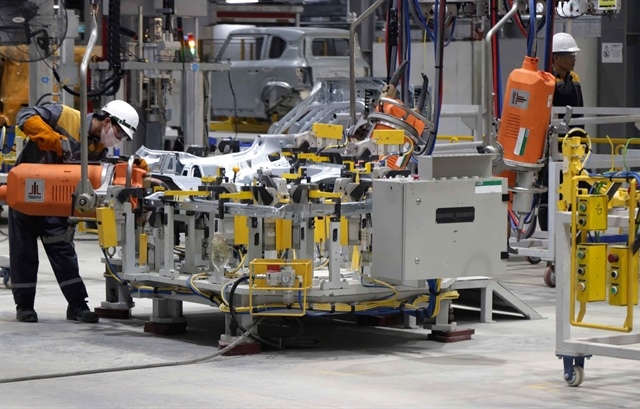Ninh Binh Nitrogenous Fertiliser under investigation
Ninh Binh Nitrogenous Fertiliser under investigation
Ninh Binh Nitronegous Fertiliser Plant and the investor Ninh Binh Nitrogenous Fertiliser One-Member Co., Ltd. will be investigated to clarify the violations of the Board of Directors during the construction and operation of the plant.

The Government Inspectorate of Vietnam (GIV) has proposed Deputy Prime Minister Truong Hoa Binh to assign ministries and relevant authorities to resolve violations in Ninh Binh Fertiliser, according to newswire Zing.vn.
Notably, GIV asked the government to assign the Ministry of Industry and Trade to clarify the responsibilities of the Board of Directors and relevant individuals in causing losses to Ninh Binh Fertiliser.
Besides, GIV requested the government to assign the State Audit Office of Vietnam to audit the entire operations of the factory, while simultaneously asking the Ministry of Public Security to conduct an investigation to clarify and deal with violations of the plant’s Board of Directors.
Previously, Deputy Prime Minister Truong Hoa Binh asked GIV to inspect the process of constructing and operating the nitrogenous fertiliser plant as well as determine the total loss the plant suffered.
The nitrogenous fertiliser plant is located in the northern province of Ninh Binh. It has an annual capacity of 560,000 tonnes and the total investment of $667 million. This is Vinachem’s biggest wholly-owned project. However, Vinachem’s actual investment in this project was $100 million only, as it had to borrow an additional $250 million from China Eximbank at the annual preferential interest rate of 4 per cent.
The plant was officially put into operation in 2012, but since then it has been continuously suffering losses. In May 2016, the plant suspended its operations due to continuous losses as well as technical problems.
According to experts, the plant was equipped with low-quality Chinese machinery, leading to high maintenance expenses that contributed to the suspension of operations.
Along with the losses, the plant also caused serious environmental damage by discharging untreated wastewater into the Day River.
After surmounting technical problems, the plant has resumed operations on January 22, 2018 at 80 per cent of its designed capacity.
The plant is in stable operations, however, it is difficult to maintain operations on the long run because the firm lacks floating capital and suffers from massive debts. According to statistics published by the plant, in 2017, the firm reported VND1.172 trillion ($51.5 million) in revenue, however, it suffered a massive loss of VND933.5 billion ($41.03 million).
Furthermore, as of August 2017, the company shouldered debts of VND4.502 trillion ($198.69 million) from various banks. VND3.263 trillion ($143.4 million) of this is long-term loans from VietinBank, VND1.184 trillion ($52.04 million) from BIDV and Vietcombank, and VND55 billion ($2.4 million) is interest payments to BIDV and VietinBank.
Besides, the company had to borrow from Vietnam National Coal-Mineral Industries Holding Corporation Limited (Vinacomin) VND133 billion ($5.85 million) worth of materials to maintain its operations until the end of this March. In the next short-term period, the company needs an additional VND80 billion ($3.5 million) to buy 40,000 tonnes of coal for production.


















